Lukas Duwenhögger

Lukas Duwenhögger
The End of the Season
Cabinet, London, 2008
Please scroll down for installation views and images of artworks.
It was the Celestial Teapot which led to this show. After the magnificent model (built by Werk 5 for Documenta 12) had been acquired by a London based collector along with the painted sectional view, the idea came up to create a show around it. The monument’s maritime aspects - its resemblance to a lighthouse, the railings, platforms and stairs, the ship-shaped chandelier under the star-studded sky and the shell on top of the cuppola - seemed to recall the pleasures of the sea, the times of physical abandon and the carefree spirit we strive to experience in our holidays, sometimes successfully.
The ‘season’ of the title refers to the tourist season, within the precincts of the Mediterranean sea, the only one I know. During that season a more or less comfortable, yet artificial cohabitation of two fundamentally distinct types of traveller emerges : the migrant and the tourist. The most radical form of travel, and the most tragic, is migration. Looking at her birthplace, the soul may well recoil ; she might find it barren, threatening, or ugly. The very odiousness of the scene may compel her to conceive a negative, a contrast, an ideal : she will dream of El Dorado and the Golden age, and rather than endure her familiar ills she may fly to anything she knows not of. This hope is not necessarily deceptive : in travel, as in being born, interest may drown the discomfort of finding oneself in a foreign medium : the solitude and liberty of the wide world may prove more stimulating than chilling. Yet migration like birth is heroic : the soul is signing away her safety for a blank cheque. The exile, to be happy, must be born again : she must change her moral climate and the inner landscape of her mind.
The migrant, suffering simultaneously from relentless overexposure, deliberate invisibility and his disenfranchisement, may belong to the army of seasonal workers who, mostly out of bitter necessity, keep the illusionary edifice of leisure afloat ; or he may be the migrant in the making, secretly plotting an escape to one of those fabled places from where the pale and equally pent-up nixies originate, often based on a scheme of seduction and conquest which, in the end, maybe, will deliver the key to the world of dreams and never-ending satisfactions in the form of visa. On the other hand there may be the former migrants who, after long years of drudgery in the factories of foreign lands, have invested what could be saved from their wages in a small hotel which guarantees, upon return to the homeland, an income in old age and for the children born abroad - should they be willing to return as well ; and finally you may lull in the breeze of an island where thousands of migrants from unfathomable places are hoarded into detention camps where, after a perilous journey, they are kept indefinitely at the mercy of international politics - or their absence. These migrants are obliged to prove that they are not fortune-seeking migrants but refugees before they are granted the necessary papers to move on to the places the tourists come from.
The tourist is the latest type of traveller, and the most notorious. He has beeen robbed of his natural dignity and his full art by the division of labour, the telegraph, steampower (digital media and cheap air travel) and the uniformity of modern countries and modern minds. There may be in him sometimes a sigh of regret for the impossible, a bit of pathetic homage to an ideal he is condemned to miss ; but as a rule he springs not from too much familiarity with alien things but from too little. The maladaptation from which he suffers and which drives him from home may not be his fault : it may be due to the atmosphere from where he comes, the coldness there, the intolerable ache of discords always repeated and right notes never struck. Or it may express an idiosyncrasy by no means regrettable, a wild atavistic instinct, or a mere need of stretching one’s legs, or a young impulse to do something hard and novel. Nevertheless he is a deluded person, trying to escape from himself .
In places which heavily rely on tourism, especially islands where the centuries-old hardships of wresting a subsistence from the wind-slashed, sun-scorched isolation made the majority leave for the mainland, only to return for the summer business, or as tourists in their place of origin, the end of the season inflicts a choking sorrow, if not acute heartbreak, not only amongst the local population, but also within the fancy swarm whose destination of return might after all not be as fancy as their luxuriant presence had suggested. Both the staying and departing lament the loss of temporary, compressed attachments and illusions, desires fed by discontent - exactly the stuff on which the tourist industry thrives ; as the unreconciled antagonism between desire and necessity is festering, all too well known contrast between desire and necessity is detrimentally upheld, the recreational values of tourism and its perceived largesse are construed in opposition to the migrants’ courageous plans to start a life from scratch in an unknown destination and in circumstances which soon enough will confront them with a highly demanding reality : a new language, a goverment’s bureaucracy, a hostile climate, a democracy needing them to define and finance itself, the erasure of the skills they bring along ; and it is by the strenght of their persistence that they come to be seen as parasites. At the end of the season there is a special despair cut out for the aspiring local young and cunning beach Gigolo ; in fact, he is not young any longer and cunningness is depleted as well. To the dismay of his mother and father he has lived in Sodom and Gomorrha season after season without any tangible results ; the hoped-for money of a foreign heir/ess would have excused his emasculation and corruption; but, pampered as he always was, he has passed into that ripe and slightly melancholic age which makes him a true connoisseur of the boudoir and adds to his appeal. He may think : Certainly among mankind, when vices become constitutional, they turn into worldly virtues ; they are sanctioned by pride and tradition, and called picturesque, sturdy, and virile. Yet to a wider view, when their forced origin is considered, they still seem ugly and sad. Sin is sin, though it be original, and misfortune is misfortune so long as the pristine soul stirs within the crust of custom, tortured by the morality which is supposed to save it … This disgrace lies heavy upon him, prompting him to sullen discontent and insidious plots … Yet their unrest is a new incentive to travel, perhaps the most powerful and persistent of all : it lends a great beauty to strangers, and fills remote places and times with an ineffable charm.
If you happen to find yourself amongst the last tourists leaving an island, you may wave goodbye to the One waving goodbye to you, standing on his beautiful feet at the dock, while your’s are standing on a huge machine which will propel you to shores unaccessible to him ; and the sudden realization that your own feet, refreshed and made sinuous by the touch of sand, pebbles, sun and water, will from now on again be imprisoned in shoes trodding the stinking pavement of wonderland, may make you despise what He takes to be your immesurable privilege. You may think : Without our feet we would live like flowers, rooted to one place. We would fade like virgins, drop our petals in sadness and shrink into our withered stalk. We would believe we had missed something we pretended to despise. But our feet give us locomotion which changes pale experience into a life of passion ; and it is on passion that intelligence is grafted. Our feet could therefore be considered the source of our intelligence. And yet we are taught to hide them like our sexual organs. Surely, then, the damage wreaked on our senses must be considerable.
Will you become one of those scattered summer lovers attempting a union of worlds whose disparity had been veiled by the wishful thinking born from the suspended restrictions of conformity encouraged and sold by the divisive industry of tourism ? Like Mary and Antonio, or, like their unacknowledged variations never making it into the communicable realms of folklore : Antony and Antonio, Mary and Maria ? If so, will you be able to withstand the ensuing holier-than-thou adversity awaiting you, whether in an English town or on the island ?
The beach Gigolo manifests the peak of desirability in the form of the lifeguard, since everybody wants to be saved by him and be brought back to life by his kisses ; then there are the pool attendants and the captains of the pleasure boats. They all share a leisurely relation with the female element, an aphrodisiac, irresistible, glistening unity beyond and above the weight of dust mortals are made to bear. Their water-bound, otherworldly existence is nevertheless held in contempt by their fathers - fishermen for whom the sea means danger and toil ; and by their stoic and exhausted mothers who are tending to their farms, pensiones and restaurants ; who, since long, have closed their eyes to the ongoing betrayals and corruption around them ; they and the seasonal workers they hire at a pittance to help them run their businesses, are never seen on the beach. It can happen that even though the sea is lapping at their door steps there’s not a moment to undress and to plunge into it, not even a moment. This, usually, goes unnoticed.
As the ship recedes and becomes a dark silhouette of loss, everything comes to a painful halt : the sea will be no longer the undulating womb for caresses inbetween skins aromatized and liberated by salt, water and sun, but inhospitable and cold ; the companionless sunsets loose all their meaning and the dancefloors are reconquered by mice. They couldn’t care less about the unplugged sound systems slowly covered in dust and the mercilessly exposed flimsiness of interiors once kept out of sight by bouncing bodies carried away by the rhythm, the lighting and the delightful intoxication ; sex, money, company, entertainment, a cloud of constant involvement, and sweet words of appreciation whispered into the shell of your ear, maybe of qualities you had hitherto no idea you possessed … all that is gone - until the next season.
In the meantime an undisclosed number of missing person bulletins will be issued by the bewildered parents of eloped teenagers who, blinded and frenzied by love, turned into ruthless thieves, convinced that they have been unjustly deprived of the true joys of life, that mountains can be moved no matter what and the new sensations they have tasted be made everlasting. Non-conformism and dissent have a particular valency under authoritarianism ; they mean something else in the context of neoliberal individualism (Alexandra Reza). In other words : whereas the former means to be sacked, sentenced, exiled, imprisoned, or tortured, the latter means merely to suffer from ennui or maladaptation ; or why my father, for instance, could spend his holidays blissfully in Greece while the military dictatorship’s vicious work drove anyone to the very places and circumstances causing his discontent and frustration ; or why I can lead a relatively contented life in İstanbul under the current rule, while others are stripped of their property and future and might drown in the Evros.
As my own life has been, like countless others, a rejoinder to the idea that everyone should stay in their proper place, it will hardly come as a surprise if my work and often the way I installed it has been, from early on, informed by the attractions and experiences of being alien - yet this fact has been consistently overlooked. The works I created for “The End of the Season” all circle around the scenes I depicted above. “Rust at Rest” is a surrealist display table proffering a little basket filled with chocolates strikingly resembling rusty nuts and bolts. The title is of course a take on Neil Young’s “Rust Never Sleeps” and suggests that the corrosive and unsettling heartache of a summer love has been overcome. A composite of found treasures from important places in my life, it is as much an ode to the precious memories travels are apt to arouse as to the tranquillity and wisdom of advanced age. The chocolates - of the highest quality - are intended to be eaten, and if they are, should be replenished ; they are produced by a famous chocolatier in Athens called ‘Aristocratikon’.
“Tattoo Removal” is a large vinyl banner advertising what it says and where it is done. You might like, at some point, to have the names and symbols of your unfaithful summer love removed. It is based on a long vanished ad in the ‘New Yorker’ and spells out the names of some seaside holiday resorts in England and Turkey.
“Goodbye My Lovely” is a bird seraglio of my own design, inspired by Ottoman models, made for migrating birds to nest. I wished it to evoke their joyous arrival, their sojourn and the anticipated sadness of their departure towards warmer climes at the end of the season.
“From Here To Eternity” deserves a more elaborate background story, being the most dramatically charged of the works. It is named after the Fred Zinnemann film from 1953 in which Deborah Kerr performs, to the shock of her fandom built on her hitherto superior lady-likeness, an unprecedented kiss with Burt Lancaster amongst crashing waves. Even though the film has otherwise little to do with summer love, this kiss has come down in movie history as “the beach kiss”. While lasting for only a couple of seconds, it can yet claim to be the most perfect enactment of the touristic hunger to set free all that encapsulated longing to be touched and devoured by the elements themselves, including passion - far from doors, keys, kitchens and bathrooms ....... and galleries.
I would call it an approximative recreation of an original, since it’s neither a found object nor an identical replica. The original hangs maybe still in the damp, dark teahouse in the Uzunköprü (Long Bridge) trainstation, at the only trainline border-crossing from Turkey into Greece, since long shut, without any doubt to make it harder for ‘illegal’ migrants to reach European territory. To my knowledge this measure has never been publicly announced. The Long Bridge, a dismal steel construction, spans the Evros river (Meriç in Turkish), notorious for the anonymous drowned whose toe – and fingernails are usually found in the stomachs of fish caught by the locals or the soldiers stationed there.
The night train replete with tidy individual compartments, destination Thessaloniki, used to leave the Sirkeci train station in İstanbul at 8 pm. Before reaching the Long Bridge at around 1 am it slowed down, and after crossing the ominous waters beneath it stopped for about three hours to be thoroughly searched by armed border police and customs officers. After you were cleared you could, if you pleased, spent the remaining time at the teahouse in the company of a few silent, exhausted and terrorized fellow travellers, mostly men. The all-pervading gloom was barely relieved there, as you remembered the liveliness and humanity of the places you had left behind just a couple of hours ago. These cursed hours of desolation made you unresponsive and inflicted a stupor which erased all perceptive alertness. But then, one night, my eyes got hold of a framed photograph of Marilyn Monroe - one I had never seen before, so unexpected and beautiful that it didn’t only put the flesh back on that ossified icon but suddenly filled the room with a breath of pulsing life and a feeling that there was ground under your feet. And then I came to realize that there was a golden object attached to her wrist - on top of the glass. I stood up from my table and walked across the room to inspect it closely. There was the picture warped by humidity, eaten into by mould behind the glass in a well crafted frame - and on top of the glass, glued to it so as to form a gorgeous bracelet for the blonde love goddess (and traitress of the working class) in the shape of an origami flower constructed with perfect care and knowledge from one of those staniol-coated lining papers in the cigarette boxes not existing any longer. An act of devotion and recognition performed by just one of those solitary, forgotten, frightened people expressing, maybe, what kind of dreams can make you cross the Long Bridge. But with what glue was it so well attached ? Surely this damned spot was outside UHU-land. Think a bit : it must have been a chewing gum ! It took a long time before that dawned on me.
Deadlines sometimes, they say, can pressure you into sharper and more coherent perceptions - a view that I radically oppose. Nevertheless I have to admit that most probably I would have forgotten about that forlonly revered Marilyn if my thoughts had not been garnered by the impending show. Anyhow, I came across a street vendour peddling posters in İstanbul ; amongst them the exact-same reproduction of the Marilyn Monroe photograph. (It was shot in 1956 by Milton H. Greene, she incidentally wearing the costume from her character Cherie in the movie Bus Stop) I bought it on the spot and then delibaretly damaged the surface by sanding it on an uneven wall to imitate the damage the mould had done to the original in the vicinity of the deadly river. What I did resulted instead in a spray of snowflakes, completely incongruous with her çingene outfit. The frame was built from salvaged oakwood from a torn-down building and the origami flower was made by a friend of mine, a foreign exchange clerk who delights to expose the results of his hobby behind the bullet-proof glass of his counter. The notion that “From Here to Eternity” could have possibly anything to do with what became to be theorized as Pop I hope to have blown to the wind.
Finally, this text would be incomplete without a mention of the groundbreaking show called “Projekt Migration” which took place in 2005 in Cologne. (Curated by Aytaç Eryılmaz, Marion von Osten, Martin Rapp, Kathrin Rhomberg, Regina Römhild) I call myself happy – even proud - to have been made a contributor to this towering, unprecedented achievement, and I am sure that other artists including Gülsün Karamustafa feel the same. Part socio-historical anthology and contemporary art exhibition, the project was one element of an initiative by the Federal Cultural Foundation of Germany that also included screenings, (film, TV, video) a symposium, performances, workshops, music, and a catalogue bigger than any produced for Documenta. (Bidoun) Critically examining the condition of migrant labourers and their struggles in post World War II Germany on both sides of the political divide, their reflection on and contributions to the culture of the country that simultaneously needed and disavowed them, the show, despite its far-reaching resonance remained locally stuck and never earned the appreciation it deserved. A projected sequel of the show to be called “1973” (the year when the presence of the so-called “guest workers” entered the public consciousness most acutely and found the sharpest and most widespread expression in popular culture) never came into being.
Lukas Duwenhögger, 15.07.2022, İstanbul, all italics George Santayana 1863 - 1952
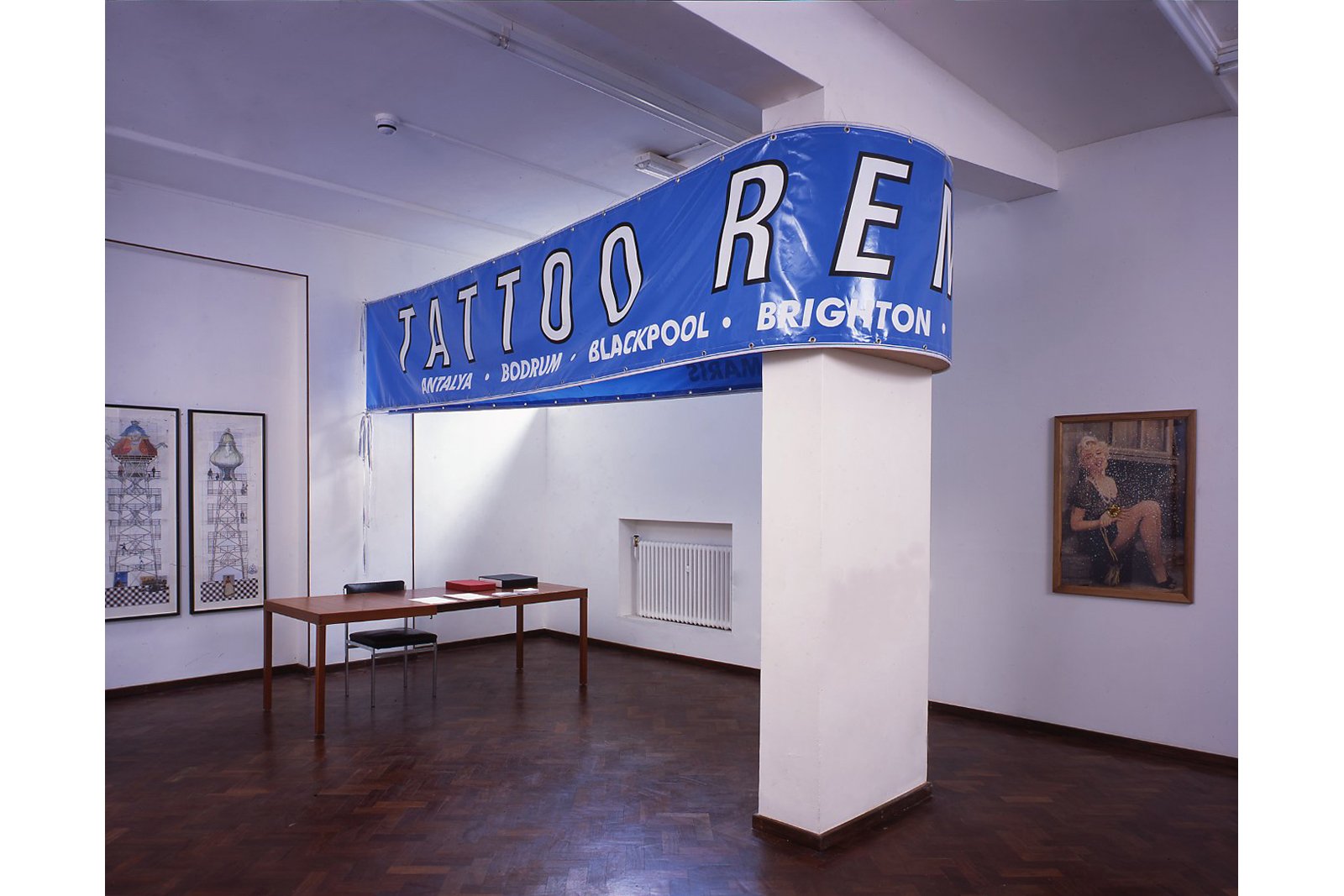
Installation view, The End of the Season, Cabinet Gallery, London, 2008
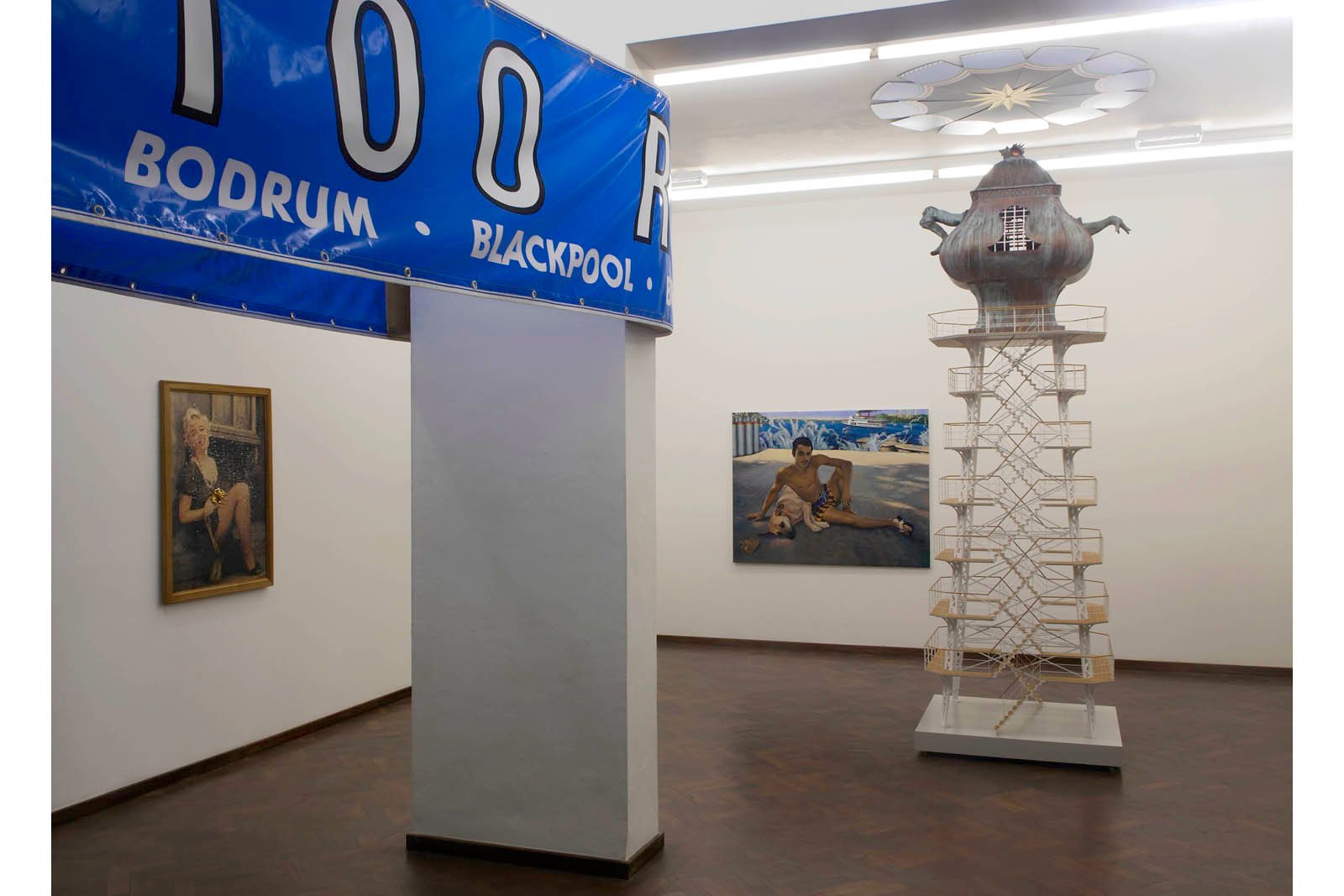
Installation view, The End of the Season, Cabinet Gallery, London, 2008
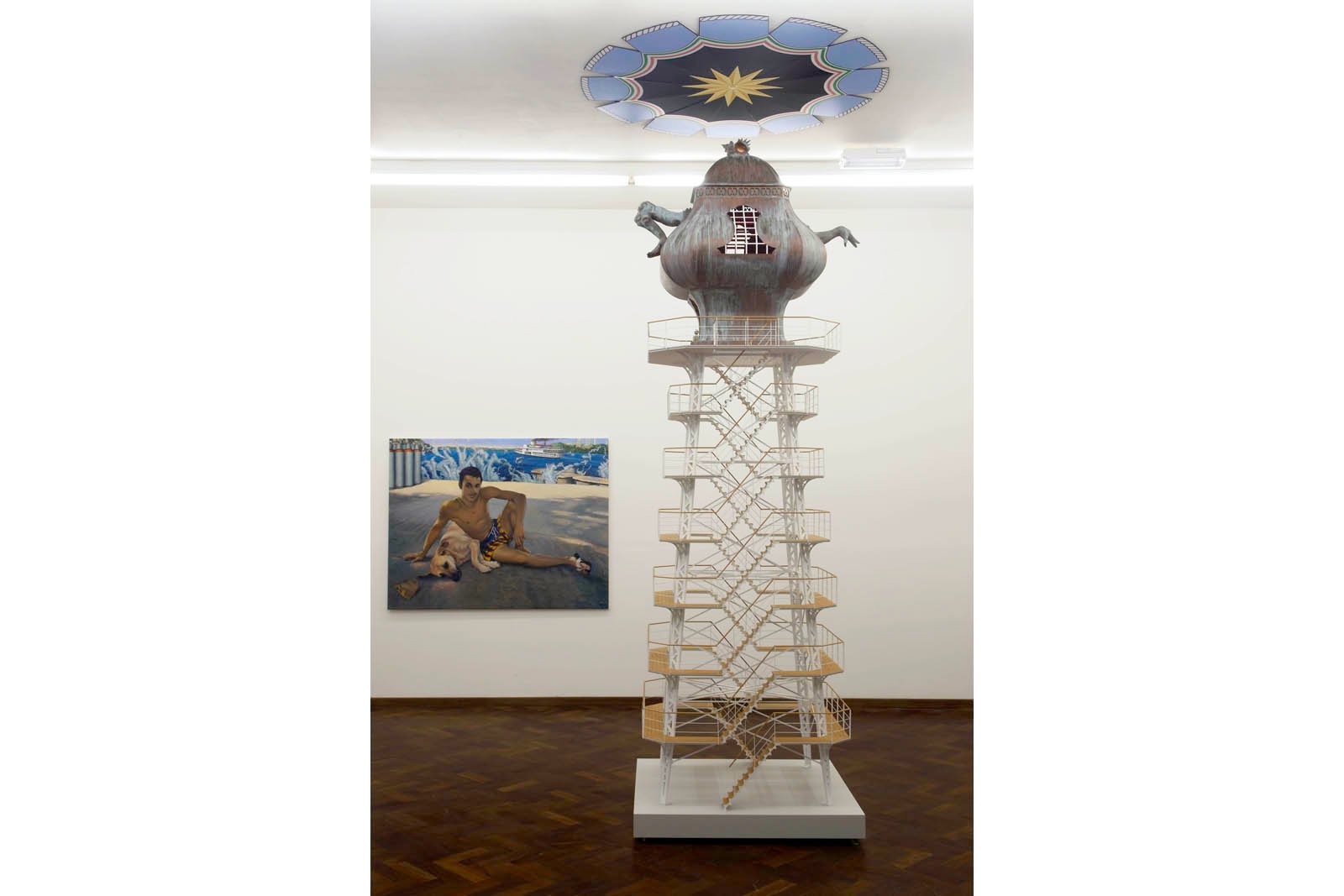
Installation view, The End of the Season, Cabinet Gallery, London, 2008
Works shown left to right
The End of the Season 2007-2008
Oil on canvas
121 x 156 cm / 47 6 x 61.4 in
The Celestial Teapot (maquette) 2006 - 2007
Proposal for a memorial site for the persecuted homosexuals of National Socialism in Berlin
Mixed media
320 x 100 x 90 cm / 126 x 39.4 x 35.4 in

Installation view, The End of the Season, Cabinet Gallery, London, 2008
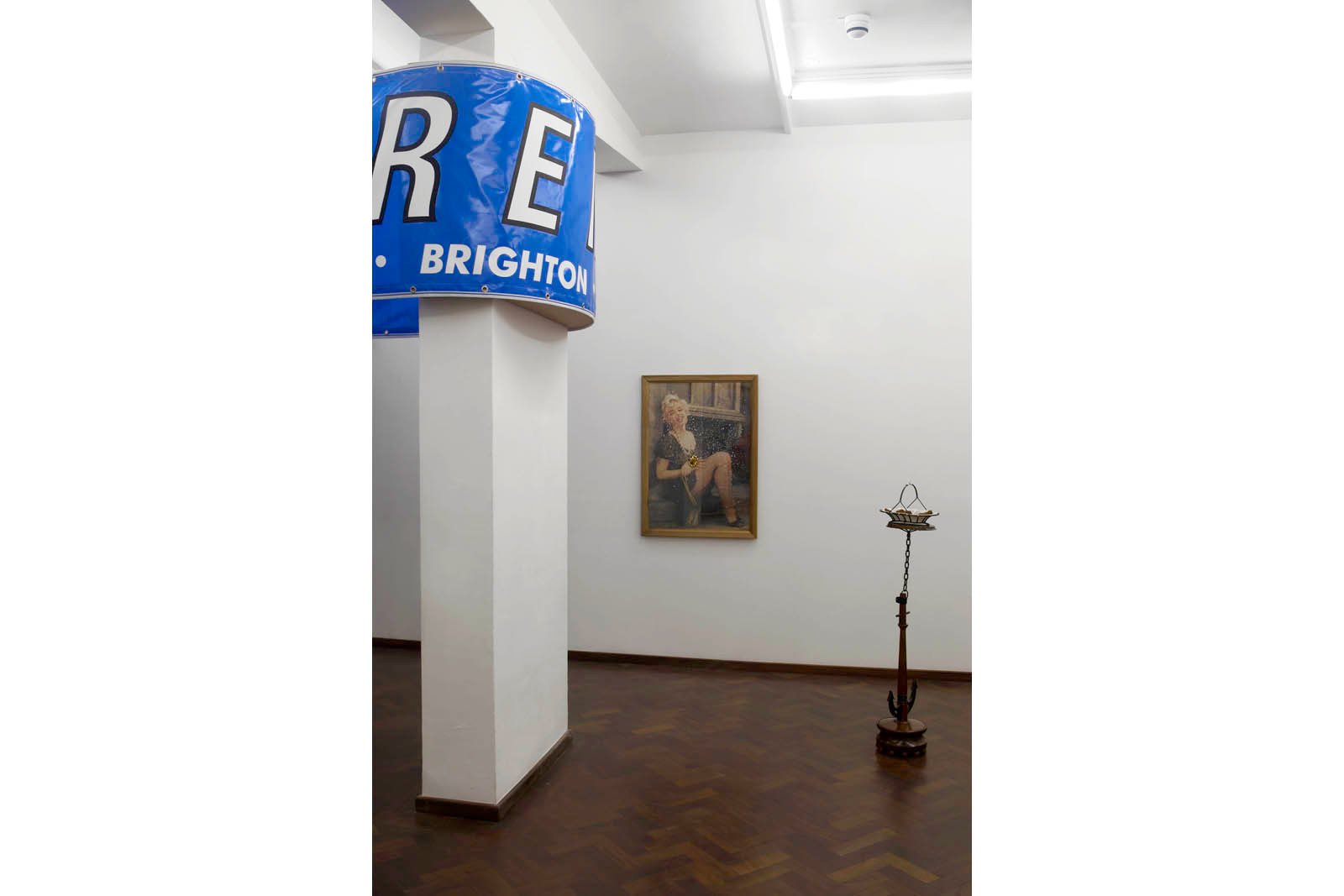
Installation view, The End of the Season, Cabinet Gallery, London, 2008

Installation view, The End of the Season, Cabinet Gallery, London, 2008
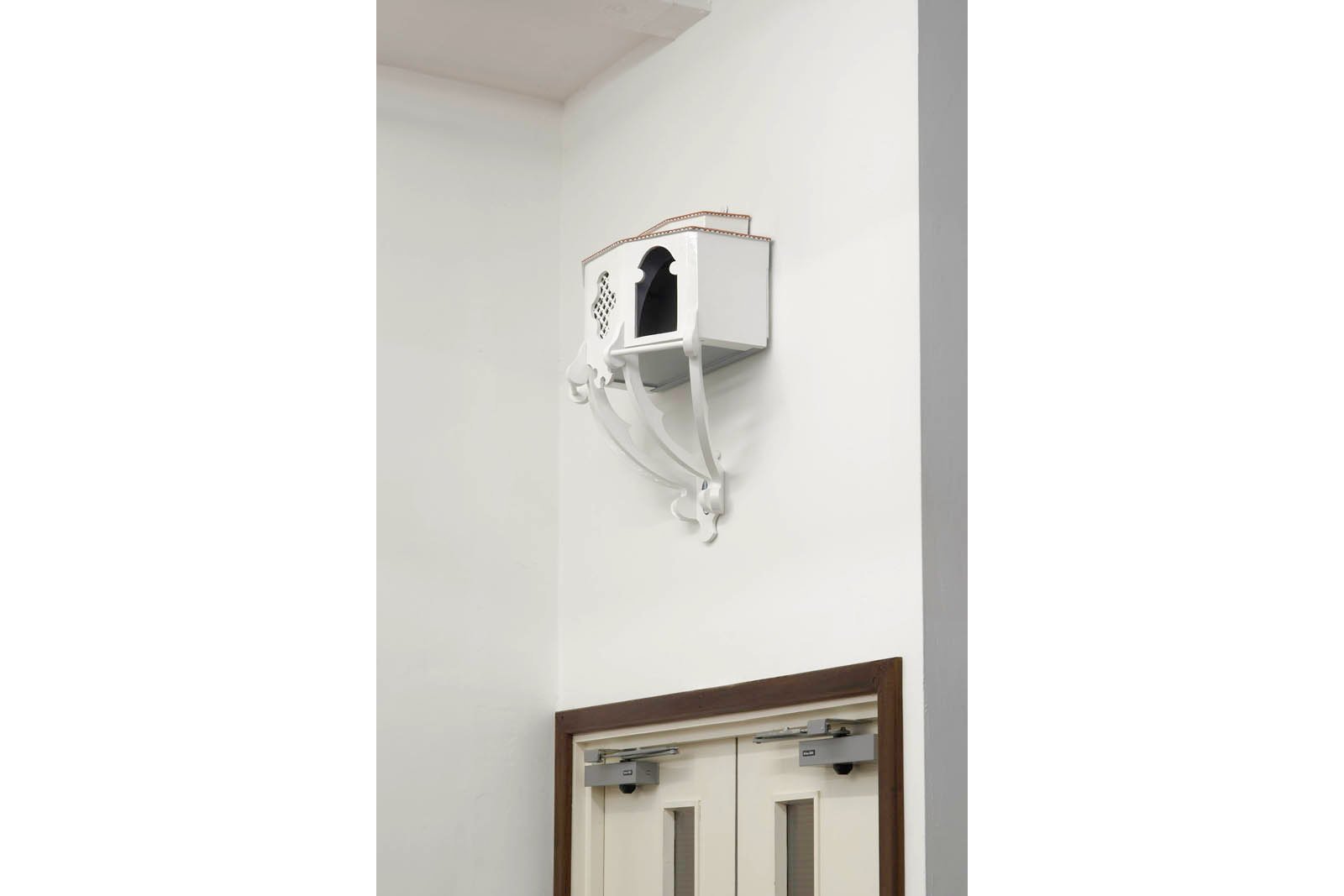
Bye Bye My Lovely 2008
Oil paint on wood
64 cm x 49 cm / 25.2 x 19.3 in
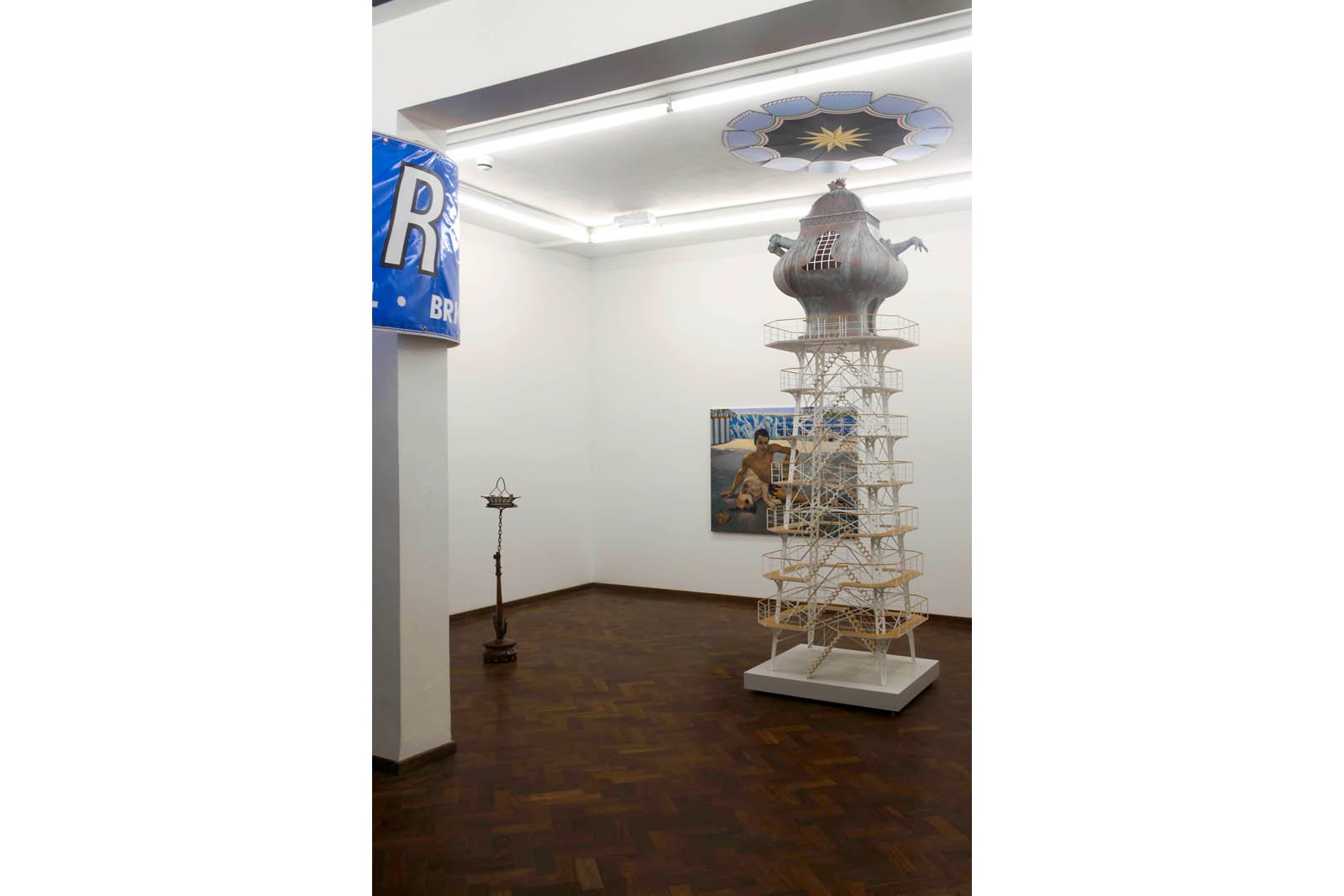
Installation view, The End of the Season, Cabinet Gallery, London, 2008
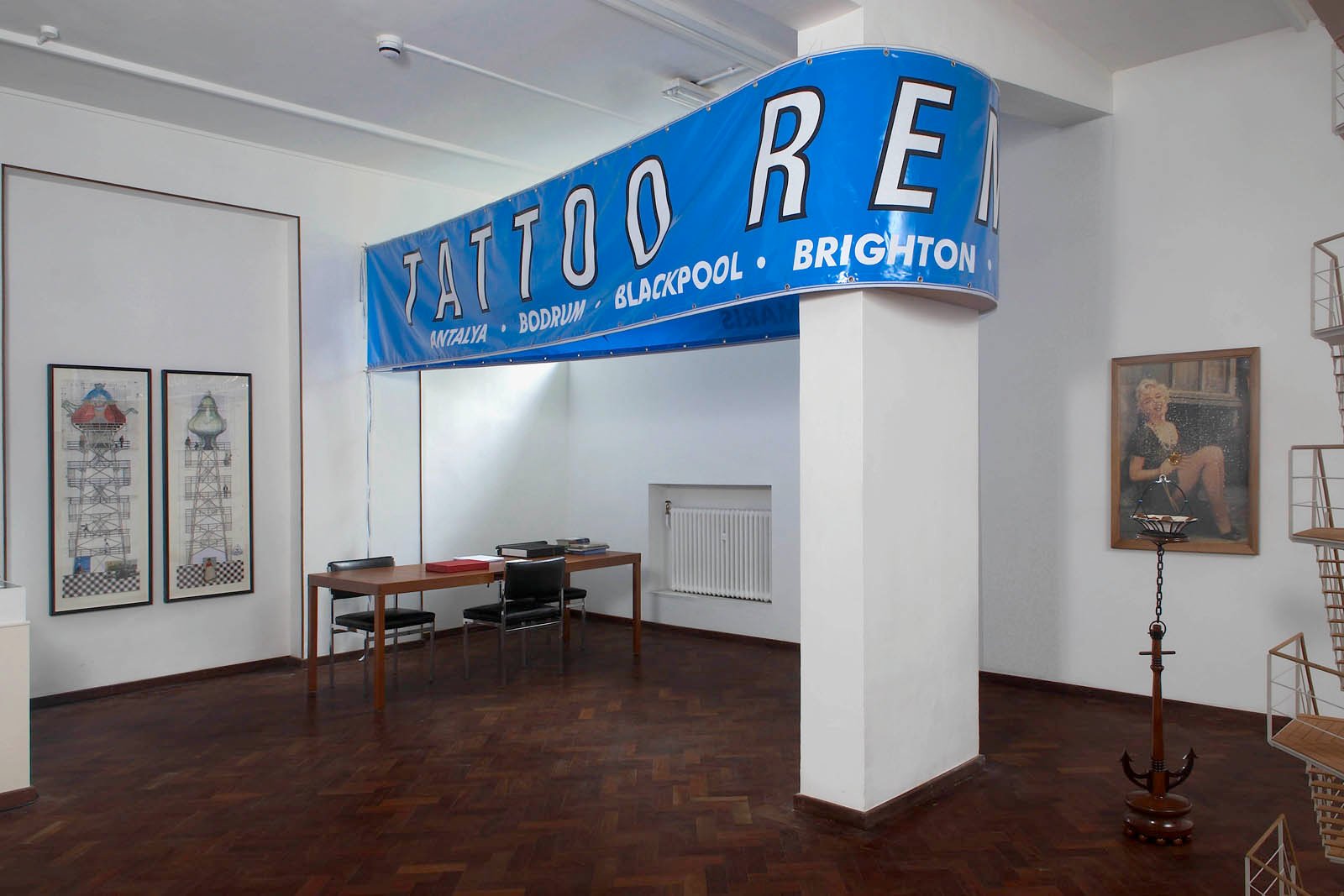
Installation view, The End of the Season, Cabinet Gallery, London, 2008

Lukas Duwenhögger
The Celestial Teapot 2007
Proposal for a memorial site for the persecuted homosexuals of National Socialism in Berlin
Preparatory designs, second stage.
Pen, ink, watercolour and collage on paper
2 parts, (part 2/2), each part 149 cm x 55 cm / 58.6 x 21.7 in
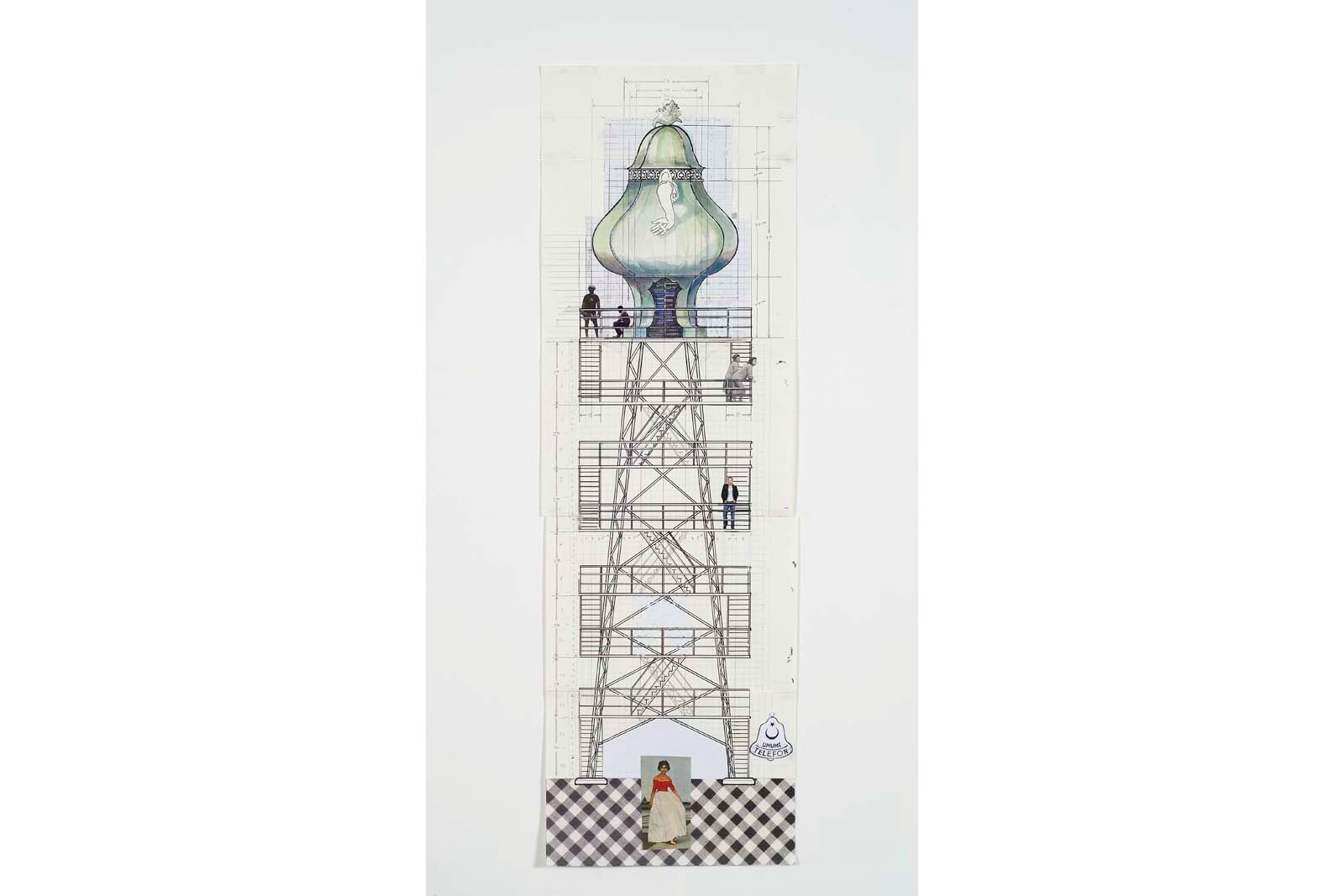
Lukas Duwenhögger
The Celestial Teapot 2007
Proposal for a memorial site for the persecuted homosexuals of National Socialism in Berlin
Preparatory designs, second stage.
Pen, ink, watercolour and collage on paper
2 parts, (part 2/2), each part 149 cm x 55 cm / 58.6 x 21.7 in
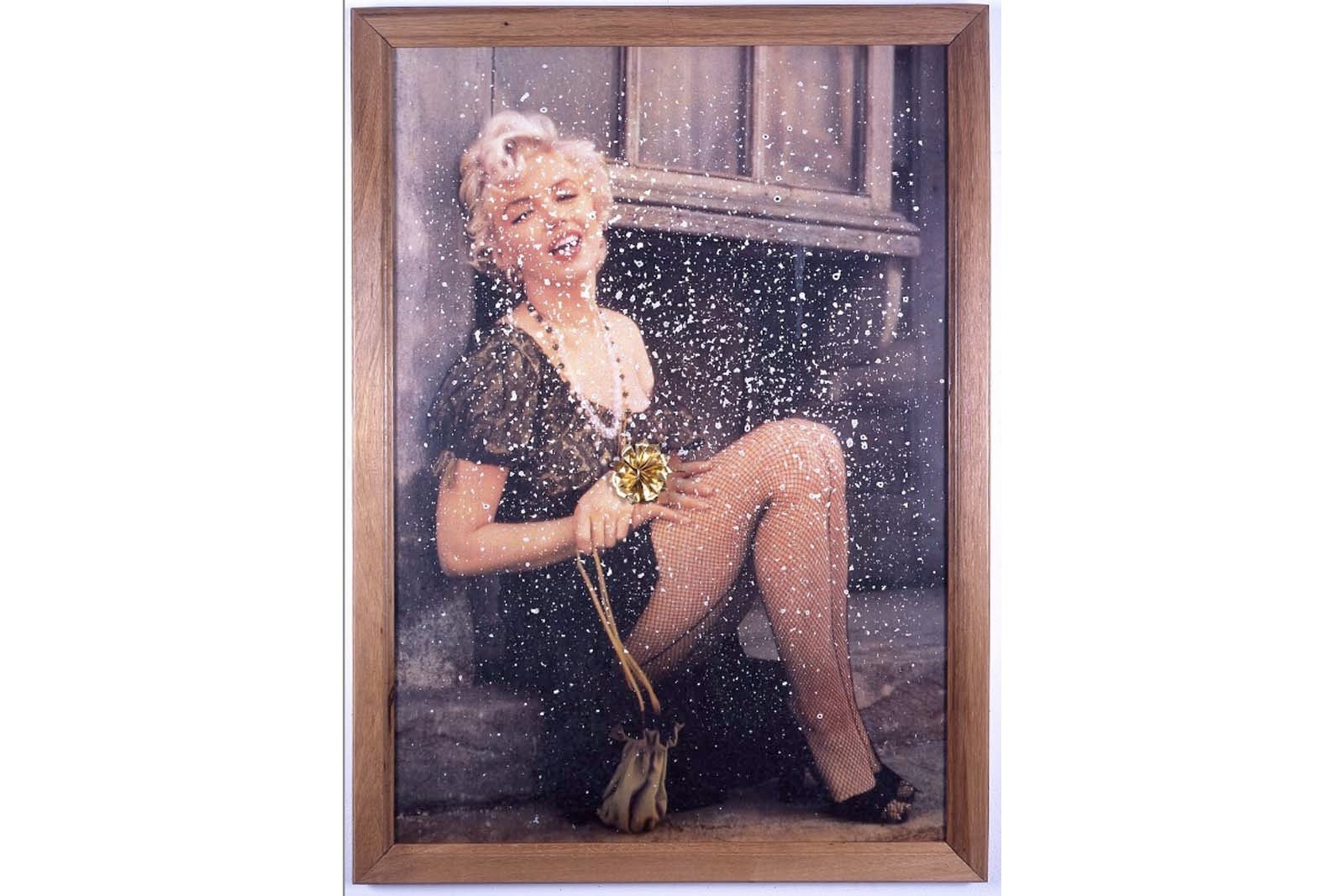
Lukas Duwenhögger
From Here to Eternity 2008
Mixed media
107cm x 77cm / 42.1 x 30.3 in

Lukas Duwenhögger
Rust at Rest, 2008
Mixed media
130 x 25 x 25cm / 51.2 x 9.8 x 9.8in
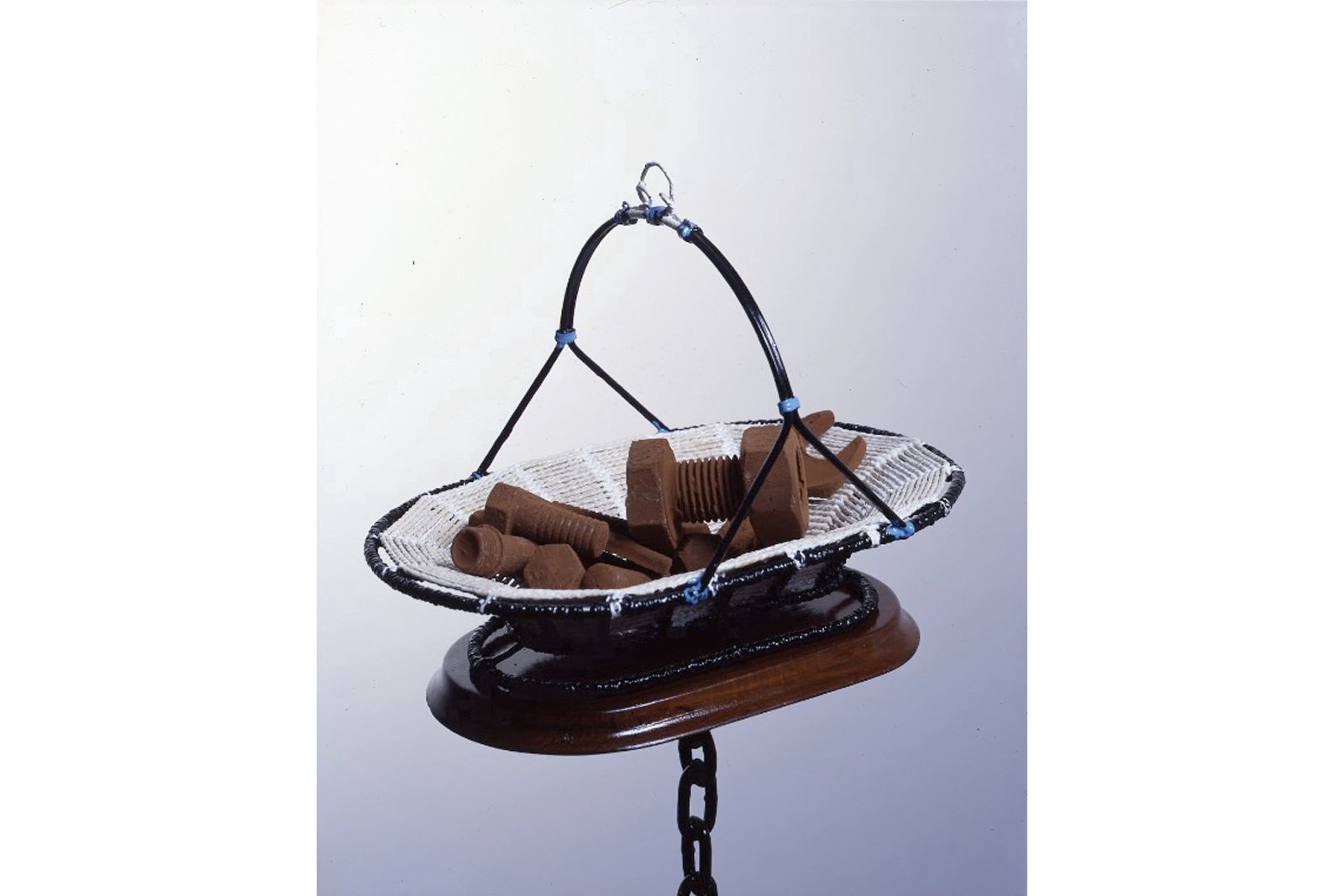
Lukas Duwenhögger
Rust at Rest 2008 (detail)
Mixed media
130 x 25 x 25cm / 51.2 x 9.8 x 9.8in
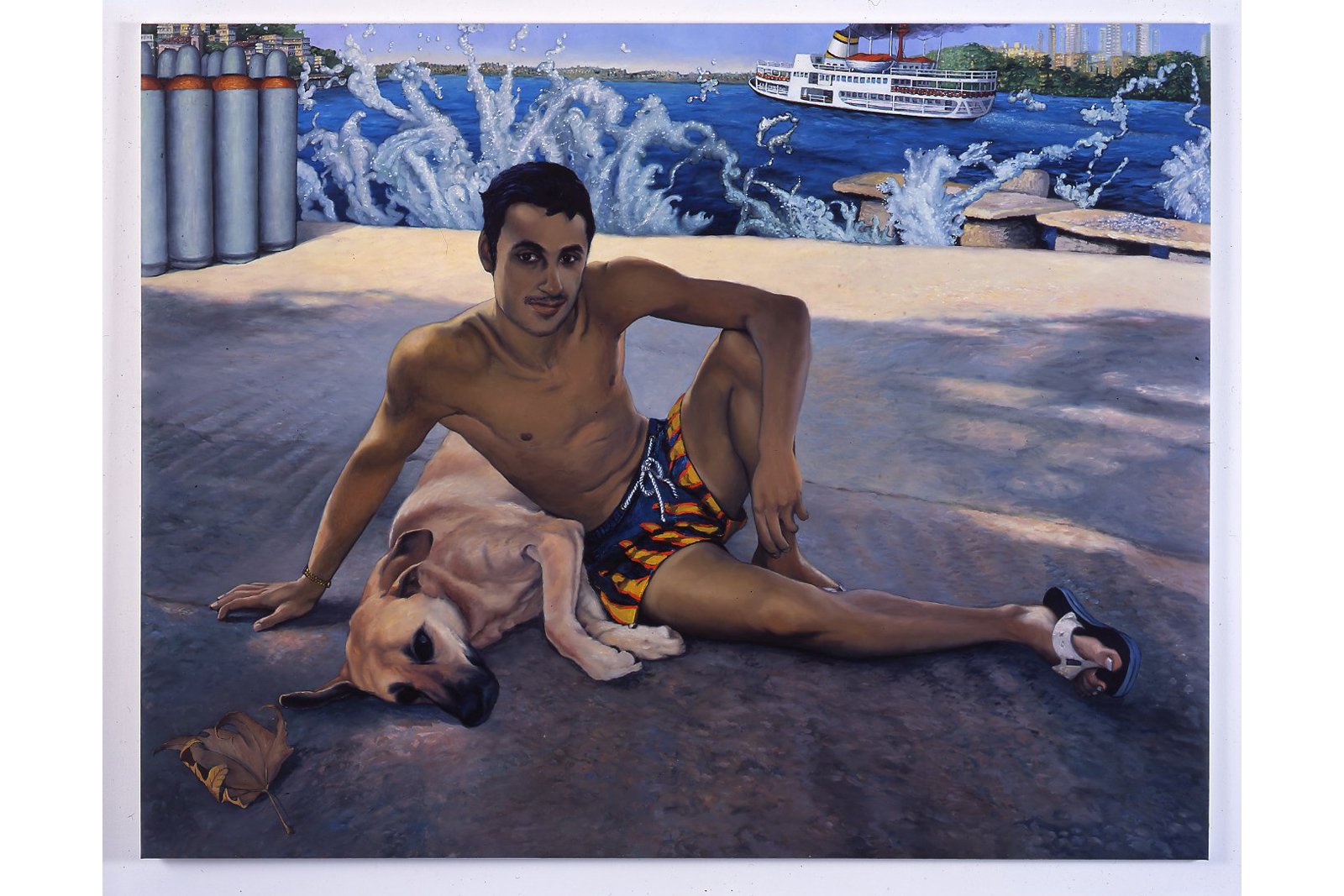
Lukas Duwenhögger
The End of the Season 2007-2008
Oil on canvas
121 x 156 cm / 47 6 x 61.4 in
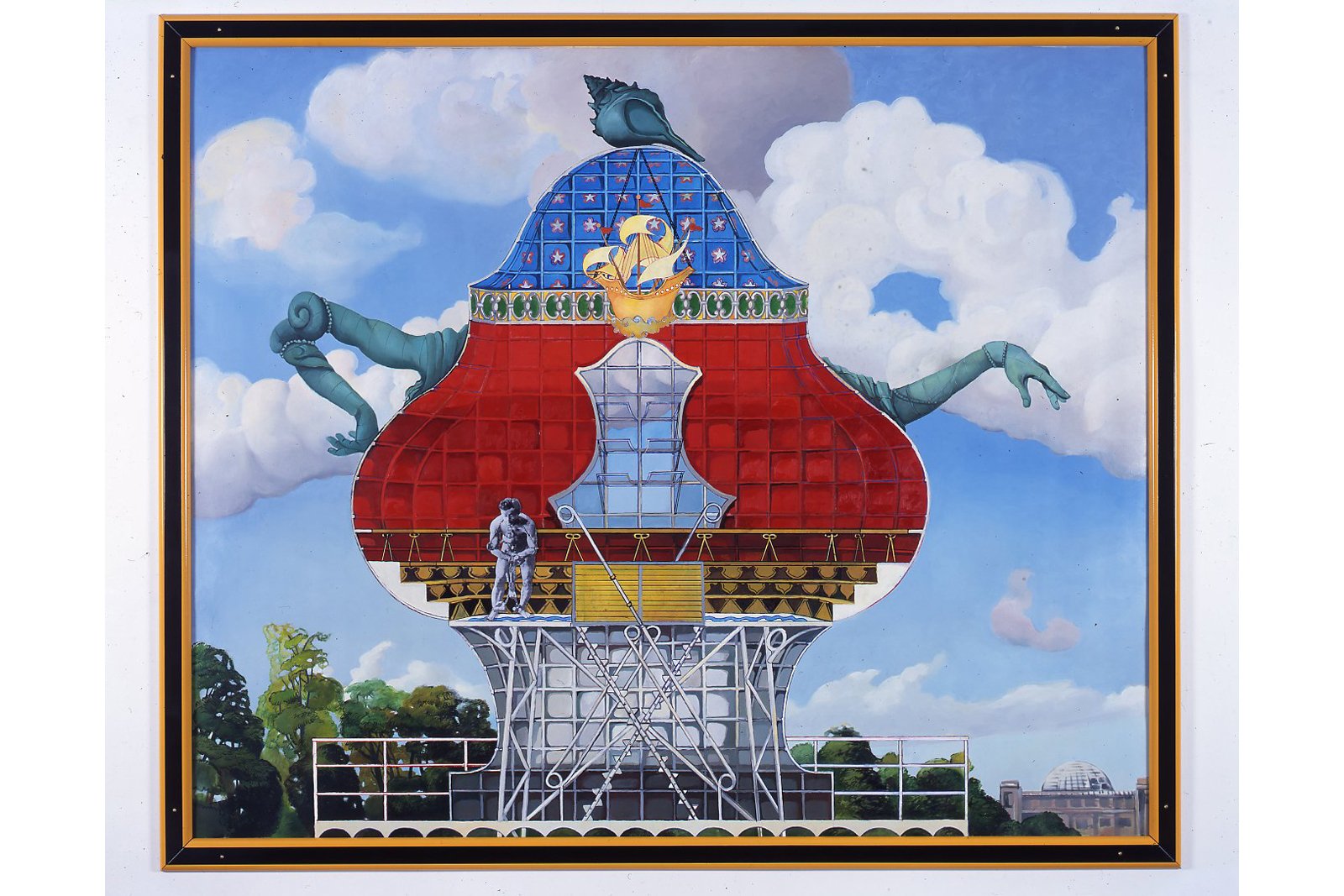
Lukas Duwenhögger
The Celestial Teapot (cross section) 2007
Proposal for a memorial site for the persecuted homosexuals of National Socialism in Berlin
Oil & collage on canvas
185 x 226 cm / 72.8 x 89 in
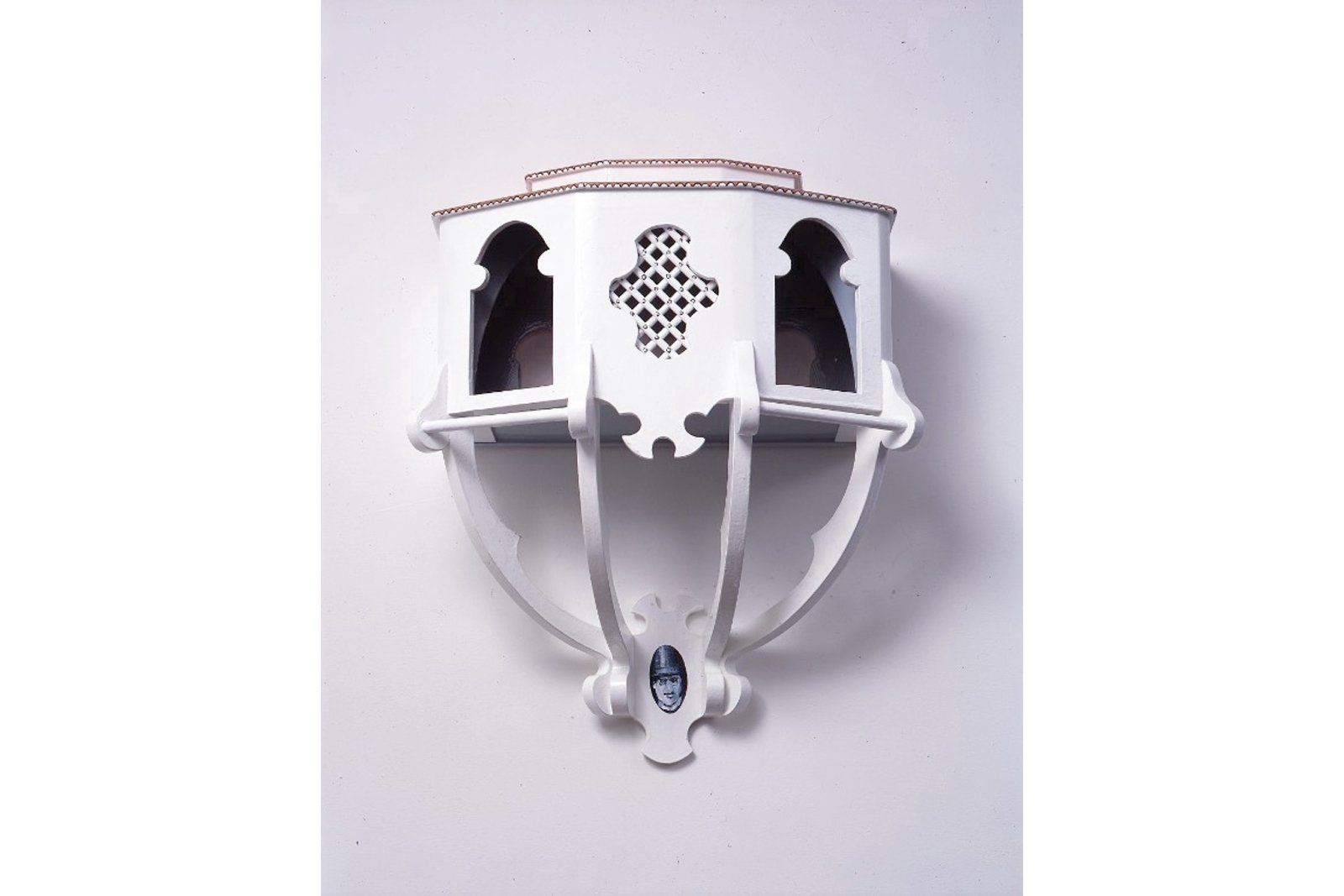
Lukas Duwenhögger
Bye Bye My Lovely, 2008
Oil paint on wood.
64 cm x 49 cm / 25.2 x 19.3 in